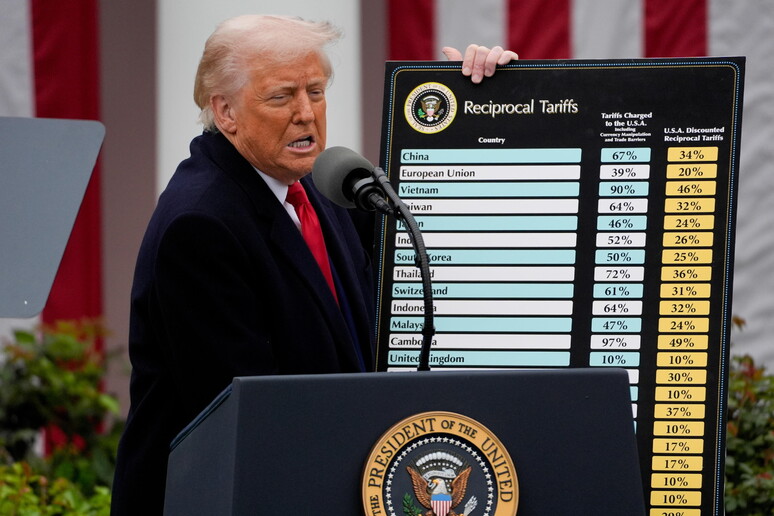A federal appeals court temporarily lifted a ruling that blocked Trump’s tariff policies on Thursday, which had been issued by the Court of International Trade just one day earlier. The CIT is a specialized federal court that deals exclusively with matters related to trade, whose authority lies below that of the US Court of Appeals for the Federal Circuit. After a three-judge panel from the CIT ruled against the White House on Wednesday, the administration sought a pause on the order from the higher court. “The judgments and the permanent injunctions entered by the Court of International Trade in these cases are temporarily stayed until further notice while this court considers the motions papers,” the appeals court order reads.
President Trump’s trade policy has gone through a number of sudden and unanticipated shifts since he announced a sweeping set of tariffs against nearly all of the United States’ trading partners on April 2nd, a date that he dubbed “Liberation Day.” Tariffs against various countries, from allies like Canada to rivals like China, were announced at very high levels, immediately causing turmoil in the financial markets, but Trump quickly relented and lowered them after seeing signs of a sell-off in US Treasuries. Trump has since reportedly earned the nickname TACO – an acronym for “Trump always chickens out” – for his propensity to announce steep tariffs and then back off. Wednesday’s overturned decision against the Trump administration affected these “Liberation Day” tariffs, as well as others directed at China, Canada, and Mexico.
Trump had been using the authority of a 1977 law called the International Emergency Economic Powers Act (IEEPA) to implement the tariff regime he had campaigned on last fall, which grants the president emergency powers to levy economic sanctions in the face of an “unusual and extraordinary threat.” For President Trump, trade deficits and fentanyl crossing the border met these criteria. The IEEPA did not agree.
While the reversal of Wednesday’s decision allows Trump to continue with his tariff policy, the plaintiffs in the case remain optimistic. “We are confident the Federal Circuit will ultimately deny the government’s motion shortly thereafter, recognizing the irreparable harm these tariffs inflict on our clients,” said Jeffrey Schwab, a lawyer with the Liberty Justice Center, which represents clients that brought the suit before the appeals court.
Another federal court ruled against the president’s tariffs in a separate case, with Judge Rudolph Contreras finding that Trump does not have the power to “unilaterally impose, revoke, pause, reinstate, and adjust tariffs to reorder the global economy” under the authority of the IEEPA. There are also other tariffs that are not touched by either case, such as those on specific products like steel, aluminum, and cars.
A briefing in the case overturned by the federal appeals court is set for June 9th, where the parties will argue their cases and the court will decide whether to extend the pause on the lower court’s decision against the Trump administration as the case plays out. Judge Contreras paused his order for 14 days to give the Justice Department time to appeal the decision.












